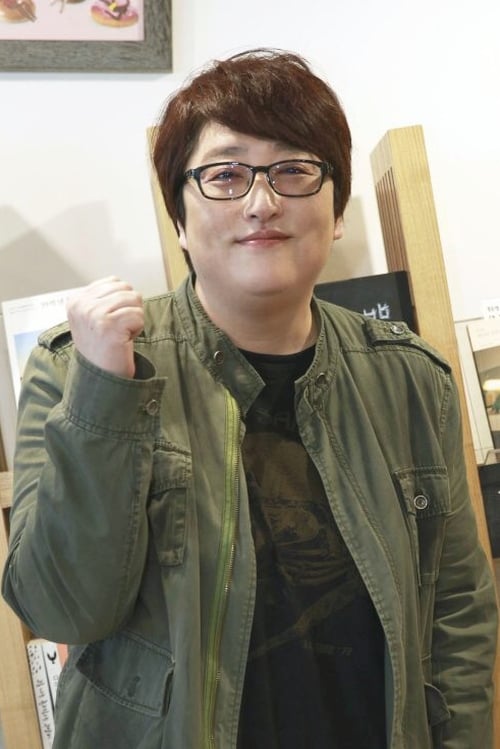Byun Young-joo
出生 : 1966-12-20, South Korea
略歴
She is a founding member of the women's feminist film collective "Bariteo," which was established in 1989. She worked as a cinematographer on Even Little Grass Has Its Own Name (dir. Kim So-young, 1989), a short film about gender discrimination at work, and My Children (dir. Doe Sung-hee, 1990), a documentary film about childcare in a poor neighborhood. Her first documentary Women Being in Asia (1993) centers on the sex trade in Asia, particularly the sex tourism of Jeju Island.

Herself
Director Chung Ji-Young criticizes the thought that older directors have difficulties in making certain movies. Actress Yoon Jin-Seo agonizes over her identity as an actress. In 2009, before the movie "Unbowed" was made, they met and planned a documentary about Korean movies, including the processes a Korean movie goes through and difficulites. "Ari Ari the Korean Cinema" is a documentary with interviews of Korean directors, actors and actresses.
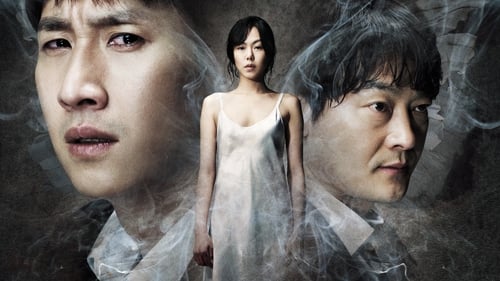
Camera Operator
結婚を一ヶ月後に控えた獣医師のムンホは、両親へ挨拶するため婚約者のソニョンとともに車で移動していた。だが途中で立ち寄ったサービスエリアで、ムンホは車中からソニョンが消え去ったことに気づく。単なる家出と決めつける警察には頼めず、ムンホはソニョンの捜索を従兄で元刑事のジョングンに依頼。しかし調査の結果、ソニョンは以前から行方不明であること、ムンホの婚約者はソニョンとは別人であることが判明する。しかも失踪当日、彼女は銀行口座から残金をすべて引き出していた

Writer
結婚を一ヶ月後に控えた獣医師のムンホは、両親へ挨拶するため婚約者のソニョンとともに車で移動していた。だが途中で立ち寄ったサービスエリアで、ムンホは車中からソニョンが消え去ったことに気づく。単なる家出と決めつける警察には頼めず、ムンホはソニョンの捜索を従兄で元刑事のジョングンに依頼。しかし調査の結果、ソニョンは以前から行方不明であること、ムンホの婚約者はソニョンとは別人であることが判明する。しかも失踪当日、彼女は銀行口座から残金をすべて引き出していた

Director
結婚を一ヶ月後に控えた獣医師のムンホは、両親へ挨拶するため婚約者のソニョンとともに車で移動していた。だが途中で立ち寄ったサービスエリアで、ムンホは車中からソニョンが消え去ったことに気づく。単なる家出と決めつける警察には頼めず、ムンホはソニョンの捜索を従兄で元刑事のジョングンに依頼。しかし調査の結果、ソニョンは以前から行方不明であること、ムンホの婚約者はソニョンとは別人であることが判明する。しかも失踪当日、彼女は銀行口座から残金をすべて引き出していた

Self
Reveals the courageous lives of pioneer camerawomen from Hollywood to Bollywood, from war zones to children’s laughter, in a way that has never been seen before. Based on a book by Alexis Krasilovsky, the film tells the stories of camerawomen surviving the odds in Afghanistan, Australia, Canada, China, France, Germany, India, Iran, Mexico, the U.S. and other countries, as well as exploring their individual visions.

Herself
A documentary consisting of twenty-two Korean directors' interviews about Kim Ki-young and respect for his work and the influence
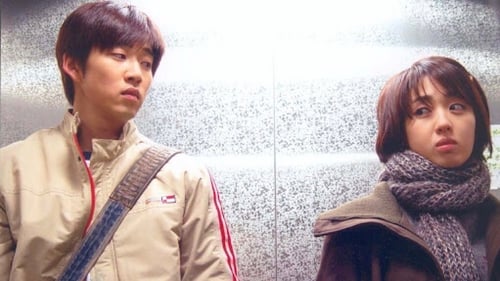
Director
Five high school teens on their way to college. But gradually they go through the struggles of life and end up discovering who they are and what it is they truly want in life.

Director of Photography
In the spring of 1992 documentary filmmaker Dong-won Kim met Cho Chang-son and Kim Seak-hyoung, two North Koreans arrested by South Korean authorities years before. Convicted of spying for the North, they were incarcerated and spent thirty years as political prisoners. These men, and many others like them, underwent conversion schemes in prison that involved torture: those who renounced their communist beliefs were released from prison early. The others, known as "the unconverted," served their full terms. None could return home to the North, however, until the turn of this century, when tensions between North and South eased significantly. Director Dong-won Kim followed these men for ten years, documenting how they survived -both physically and psychologically, the dehumanizing time spent in prison, and their quest, once released, to finally go home.
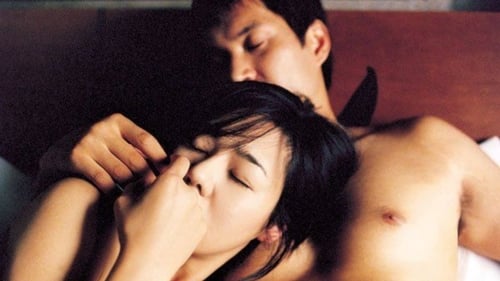
Screenplay
主婦ミフンは、出版社を経営する夫と小学生の娘と何不自由ない幸せな毎日を送っていた。ところが、そんなささやかな幸せが一瞬にして崩れ去る。クリスマス・イヴの夜、突然女が家にやってきてミフンの前で夫の愛人であること告白したのだった。半年後、一家は自然に囲まれた田舎に引っ越した。しかしあの日以来、ミフンの心には深い傷が残ったままだった。そんなある日、彼女は偶然知り合った青年医師インギュからある提案を持ちかけられる。それは、この夏の間、恋人として過ごし、どちらかが“愛してる”と言ったら終り、という“恋愛ゲーム”だった。

Director
主婦ミフンは、出版社を経営する夫と小学生の娘と何不自由ない幸せな毎日を送っていた。ところが、そんなささやかな幸せが一瞬にして崩れ去る。クリスマス・イヴの夜、突然女が家にやってきてミフンの前で夫の愛人であること告白したのだった。半年後、一家は自然に囲まれた田舎に引っ越した。しかしあの日以来、ミフンの心には深い傷が残ったままだった。そんなある日、彼女は偶然知り合った青年医師インギュからある提案を持ちかけられる。それは、この夏の間、恋人として過ごし、どちらかが“愛してる”と言ったら終り、という“恋愛ゲーム”だった。

Herself
Keeping the Vision Alive is a documentary film containing the voices and images of Korean women filmmakers-both senior filmmakers and also the peers of director Yim. The film is Yim’s homage to both contemporary Korean women filmmakers, written by a filmmaker of the same age, and also to the history of women filmmakers in Korea. Yim does not reveal her own voice or opinion and lets the voices and images of the filmmakers speak for themselves through a non-interventionist camera. From the pioneers, Park Nam-ok, and Hwang Hye-mi, who directed First Experience in 70’s, to recent filmmakers, Byun Young-joo and Jang Hee-sun, the film traces their experiences, troubles, concerns and thoughts as women and women filmmakers. Keeping the Vision Alive calmly and enthusiastically encourages and celebrates the struggles, the resistance and the survival of women filmmakers in a conservative Korean film industry and a male-dominated and sexist social system. (Kwon Eun-sun)
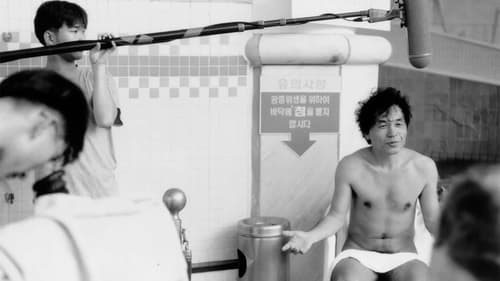
Herself
Divided into chapters, the documentary examines Jang's career and films from many different angles and includes the voices not only of those who have worked with Jang but also of numerous ordinary Koreans who have been affected by his work. Individual chapters are devoted to such topics as Jang's idiosyncratic hairstyle and the controversy surrounding his previous feature Lies. The documentary tries to place Jang and his work in the widest possible social context, not only in the context of Korean cinema. At its heart is a series of remarkably candid and revealing interviews with Jang himself.

Director of Photography
Final chapter of a trilogy documenting the present and past lives of "comfort women".

Director
Final chapter of a trilogy documenting the present and past lives of "comfort women".
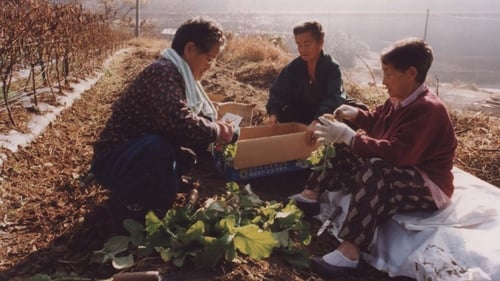
Producer
In World War II Japan forced many South Korean girls into sexual slavery. Known as "comfort woman," they were abducted as teenagers and shipped off to the front to service as many as 30 troopers a day. In 1991, some of them began testifying about their experiences. A "sharing house" was then established for former comfort women and provided the setting for Habitual Sadness, a documentary showing the enduring wounds but strong spirit of these women.

Director
In World War II Japan forced many South Korean girls into sexual slavery. Known as "comfort woman," they were abducted as teenagers and shipped off to the front to service as many as 30 troopers a day. In 1991, some of them began testifying about their experiences. A "sharing house" was then established for former comfort women and provided the setting for Habitual Sadness, a documentary showing the enduring wounds but strong spirit of these women.
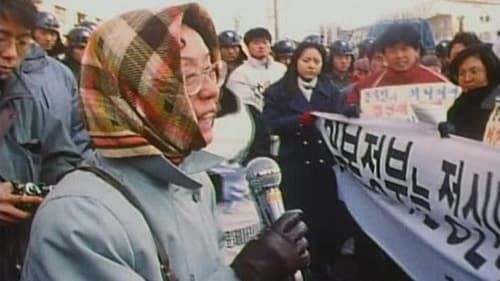
Writer
At noon every Wednesday, women who used to be comfort ladies and their supporters demonstrated against the Japanese Government in an attempt to receive an official apology and compensation for damages against Korean women who had been held captive as sex slaves by the imperialist Japanese Army during World War II. Overcaming years of embarrassment and silence, the old women tell us their stories of the past. A house called 'Share' is the shared residence of six women with the same past. Learning Korean alphabet and drawing regardless of weather, they continue their hard lives to overcome the period of regret and pain.

Director
At noon every Wednesday, women who used to be comfort ladies and their supporters demonstrated against the Japanese Government in an attempt to receive an official apology and compensation for damages against Korean women who had been held captive as sex slaves by the imperialist Japanese Army during World War II. Overcaming years of embarrassment and silence, the old women tell us their stories of the past. A house called 'Share' is the shared residence of six women with the same past. Learning Korean alphabet and drawing regardless of weather, they continue their hard lives to overcome the period of regret and pain.

Editor
This documentary is an "Asian report" on so-called international prostitution. The subject matter of parasitic tourism in Jeju Island in Korea is focused on, and it is said that international prostitution in Asia has a relationship between countries, focusing on Thailand and Japan, and that it is not only a problem between countries biased by the flow of capital, but also in the context of "sexual culture" with long roots. In the second half, the question is what is the alternative and what is the boundary between prostitution and non-prostitution in the current situation that is considered to be like "ghetto" because it is separated from the life of the general public.

Director of Photography
This documentary is an "Asian report" on so-called international prostitution. The subject matter of parasitic tourism in Jeju Island in Korea is focused on, and it is said that international prostitution in Asia has a relationship between countries, focusing on Thailand and Japan, and that it is not only a problem between countries biased by the flow of capital, but also in the context of "sexual culture" with long roots. In the second half, the question is what is the alternative and what is the boundary between prostitution and non-prostitution in the current situation that is considered to be like "ghetto" because it is separated from the life of the general public.

Director
This documentary is an "Asian report" on so-called international prostitution. The subject matter of parasitic tourism in Jeju Island in Korea is focused on, and it is said that international prostitution in Asia has a relationship between countries, focusing on Thailand and Japan, and that it is not only a problem between countries biased by the flow of capital, but also in the context of "sexual culture" with long roots. In the second half, the question is what is the alternative and what is the boundary between prostitution and non-prostitution in the current situation that is considered to be like "ghetto" because it is separated from the life of the general public.

Director of Photography
Co-produced by Womenlink and the Feminist Film Collective Parituh, Even Little Grass Has Its Own Name was shot on 16mm film and was the first of its kind in Korea to address the issue of female office workers. The film is divided into two parts. Part 1 is about the conflicts of married female office workers who suffer from undertaking office work, housework, and childcare all at the same time. Part 2 focuses on single female workers who break away from being the traditional ‘flower of the company,’ and develop a greater sense of autonomy as they actively participate in forming a labor union.

Screenplay
Co-produced by Womenlink and the Feminist Film Collective Parituh, Even Little Grass Has Its Own Name was shot on 16mm film and was the first of its kind in Korea to address the issue of female office workers. The film is divided into two parts. Part 1 is about the conflicts of married female office workers who suffer from undertaking office work, housework, and childcare all at the same time. Part 2 focuses on single female workers who break away from being the traditional ‘flower of the company,’ and develop a greater sense of autonomy as they actively participate in forming a labor union.

Director
This is the strange story of people who come to this light store.

